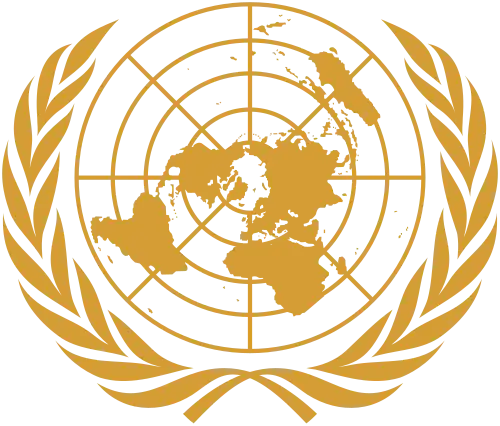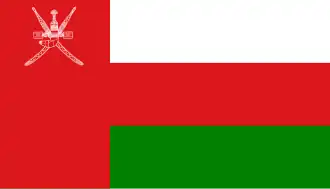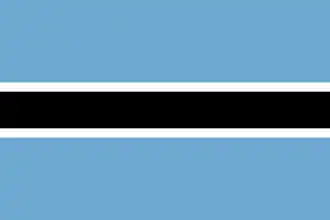United Nations Statistical Commission
 | |
| Abbreviation | StatCom |
|---|---|
| Formation | 1946 |
| Type | Intergovernmental organization, regulatory body, advisory board |
| Legal status | Active |
| Location |
|
Chair | Georges-Simon Ulrich, |
Parent organization | United Nations Economic and Social Council |
| Subsidiaries | United Nations Statistics Division |
| Website | unstats |
The United Nations Statistical Commission (StatCom) is a Functional Commission of the United Nations Economic and Social Council, established in 1946.[2][3] The Statistical Commission oversees the work of the United Nations Statistics Division (UNSD). Its 24 member states are elected by the Economic and Social Council on the basis of the following geographical distribution: African states (5), Asian States (4), Eastern European States (4), Latin American and Caribbean States (4), Western European and other States (7). In 2024, the Economic and Social Council decided to progressively increase the number of members in the Commission from 24 to 54 until 2028, which aims to enhance representation and inclusivity. Member states are usually represented by their chief statistician. Since 2000 the Commission meets every year. As set forth by the Economic and Social Council, in the terms of reference,[4] the Commission fulfils the function of “the primary body responsible for the management of statistical information and governance of statistics and data”. In doing so, it acts as the “apex forum for discussions, knowledge exchange and sharing of best practices on statistics and data across all domains, to develop and maintain international statistical standards and norms, tools and methodologies, to support and bolster the development of sustainable national statistical systems, to develop and build the capacity of national systems, to for the professional community of official statistics, and to ensure continued innovations to adapt to the changing statistical and data system”.
The Bureau
The officers are the Chairperson, 3 Vice-chairpersons and the Rapporteur, elected for a one-year period by the members of the Commission at the beginning of a session.[5] Since 1999, its role is more of a steering one; the Chairman may seek for complementary assistance from other members (Friends of the Chair).
- Chairpersonship[6]
- YearSessionCountryChair
2025 56th .svg.png) Switzerland
Switzerland
Georges-Simon Ulrich 2024 55th .svg.png) Switzerland
Switzerland
Georges-Simon Ulrich 2023 54th  Hungary
Hungary
Gabriella Vukovich 2022 53rd  Hungary
Hungary
Gabriella Vukovich 2021 52nd  Japan
Japan
Shigeru Kawasaki 2020 51st  Japan
Japan
Shigeru Kawasaki 2019 50th  Kenya
Kenya
Zachary Mwangi 2018 49th  Kenya
Kenya
Zachary Mwangi 2017 48th  Brazil
Brazil
Wasmália Bivar 2016 47th  Brazil
Brazil
Wasmália Bivar 2015 46th  United Kingdom
United Kingdom
John Pullinger 2014 45th  United Kingdom
United Kingdom
Jil Matheson 2013 44th  Hungary
Hungary
Gabriella Vukovich 2012 43rd  Hungary
Hungary
Gabriella Vukovich 2011 42nd  Oman
Oman
Ali Bin Mahboob 2010 41st  Oman
Oman
Ali Bin Mahboob 2009 40th  South Africa
South Africa
Pali Lehohla 2008 39th  South Africa
South Africa
Pali Lehohla 2007 38th  Mexico
Mexico
Gilberto Calvillo Vives 2006 37th  Mexico
Mexico
Gilberto Calvillo Vives 2005 36th  US
US
Katherine Wallman 2004 35th  US
US
Katherine Wallman 2003 34th  Hungary
Hungary
Tamás Mellár 2002 33rd  Hungary
Hungary
Tamás Mellár 2001 32nd  Japan
Japan
Shigeru Kawasaki 2000 31st  Botswana
Botswana
Guest Charumbira 1999 30th  Botswana
Botswana
Guest Charumbira 1997 29th  Mexico
Mexico
Carlos Jarque 1995 28th  United Kingdom
United Kingdom
Bill McLennan 1994 Special session  Poland
Poland
Jozef Olenski 1993 27th  Netherlands
Netherlands
Willem Begeer 1991 26th  Netherlands
Netherlands
Willem Begeer 1989 25th  Argentina
Argentina
Luis Alberto Beccaria 1987 24th  Ghana
Ghana
Emmanuel Oti Boateng 1985 23rd  Ireland
Ireland
Tom Linehan 1983 22nd  Hungary
Hungary
Vera Nyitrai 1981 21st  US
US
Joseph W. Duncan 1979 20th  Soviet Union
Soviet Union
Mikhail Antonovich Korolev 1976 19th  India
India
V. R. Rao 1974 18th  United Kingdom
United Kingdom
Claus Moser 1972 17th  France
France
Jean Ripert 1970 16th  France
France
Jean Ripert 1968 15th .svg.png) Australia
Australia
Keith Archer 1966 14th  Norway
Norway
Petter Jakob Bjerve 1965 13th  Norway
Norway
Petter Jakob Bjerve 1962 12th  Ireland
Ireland
Donal McCarthy 1960 11th  Ireland
Ireland
Donal McCarthy 1958 10th  New Zealand
New Zealand
George Wood 1956 9th  India
India
P.C. Mahalanobis 1954 8th  India
India
P.C. Mahalanobis 1953 7th  United Kingdom
United Kingdom
Harry Campion 1951 6th  United Kingdom
United Kingdom
Harry Campion 1950 5th  Netherlands
Netherlands
Philip Idenburg 1949 4th  Netherlands
Netherlands
Philip Idenburg 1948 3rd .svg.png) Canada
Canada
Herbert Marshall 1947 (August) 2nd .svg.png) Canada
Canada
Herbert Marshall 1947 (January) 1st .svg.png) Canada
Canada
Herbert Marshall 1946 Nuclear session  US
US
Stuart A. Rice
See also
- Committee for the Coordination of Statistical Activities
- List of national and international statistical services
- United Nations Statistics Division
- Voorburg group
- World Statistics Day
References
- ^ "Chairpersons of the Statistical Commission”. UN Statistical Commission.
- ^ "Mandate". UN Statistical Commission
- ^ Rice, Stuart A. (1946). "The United Nations Statistical Commission". Econometrica. 14 (3): 242–250. "doi":"10.2307/1905775". "ISSN 0012-9682".
- ^ «Terms of Reference». UN Statistical Commission.
- ^ refer also to "Committee for the Coordination of Statistical Activities (CCSA)"
- ^ “Chairpersons of the Statistical Commission”. UN Statistical Commission.